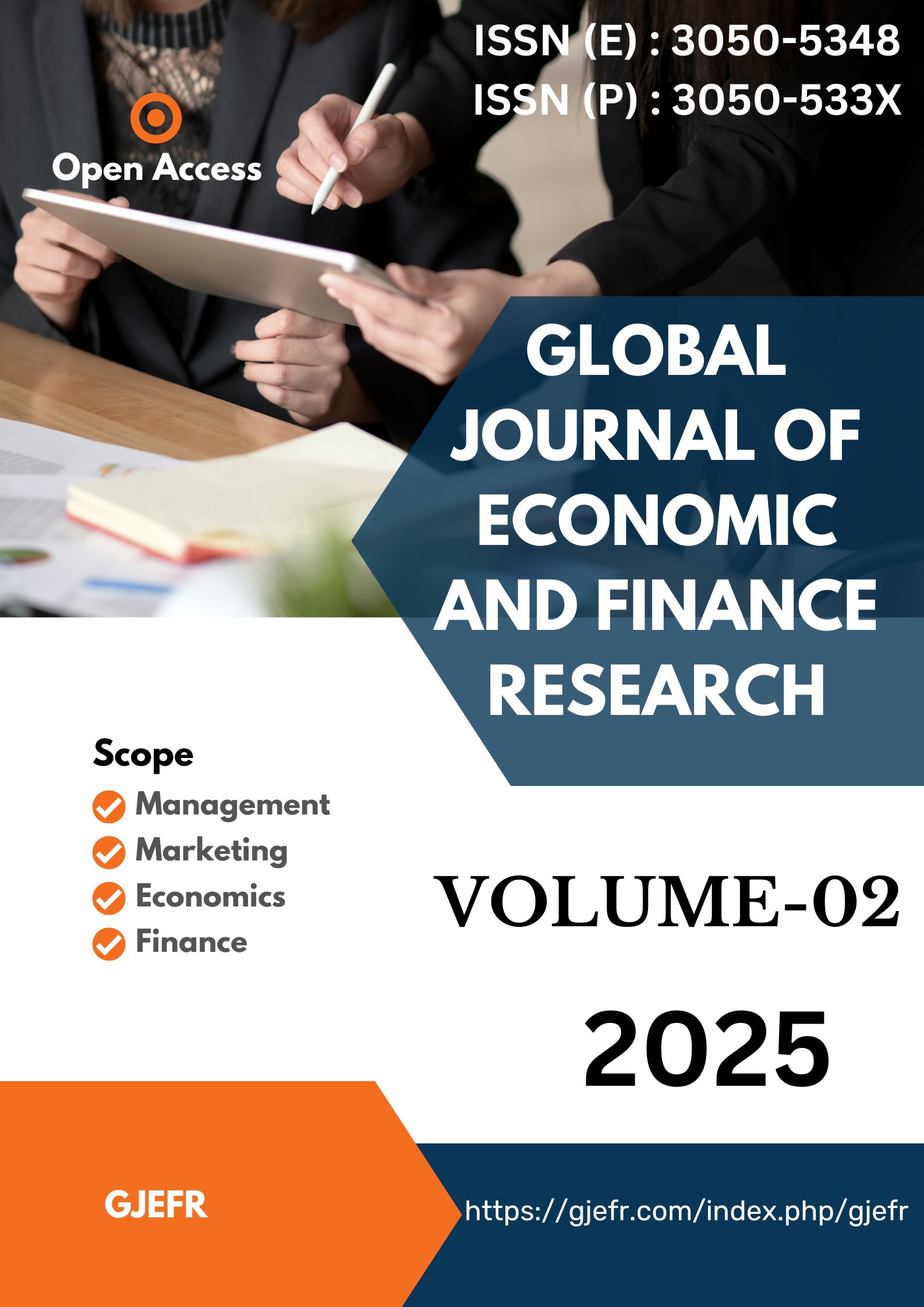Relationship Between Starting Salary and Categorical Variables
DOI:
https://doi.org/10.55677/GJEFR/01-2024-Vol01E4Keywords:
Starting salary, Sex, Educational level, and Econometric modelAbstract
The present study aims to highlight the different phases of the econometric model construction process, namely: specification, data characterization, estimation, diagnosis, and interpretation of the estimated parameters, based on the analysis of the relationship between a discrete variable, the starting salary, and two categorical variables, sex and education level. Assuming that salary variations are expressed in percentages and that β is the coefficient that, also in percentage terms, explains the variations that occur per unit in the independent variables and that demonstrate the dependent variable, the logarithms of the salary were calculated initially, considering the magnitude of the values in which salaries are expressed, which are normally large. The asymptosis of the sample allowed us to obtain a normal distribution for Ln salary observations, guaranteeing the assumption of linearity between the variables analyzed, namely between starting salary, sex, and educational level.
References
Chein, F. (2019). Introdução aos Modelos de Regressão Linear: Um passo Inicial para Compreensão da Econometria como uma Ferramenta de Avaliação de Políticas Públicas. Brasília - DF: Enap.
Goos, P., & Jones, B. (2011). Optimal Design of Experiments: A Case Study Approach. Rotterdam: Wiley & Sons.
Lim, K. G. (2022). Theory and Econometrics of Financial Asset Pricing. Lithuania: Walter de Gruyter GmbH & Co KG. doi:10.1515/9783110673951-201
Murphy, K. M., & Topel, R. H. (2002). stimation and Inference in Two-Step Econometric Models. Journal of Business & Economic Statistics, 20(1), 88-97. doi:10.1198/073500102753410417
Sanches-António, L. D., Sanjimbi, A. S., Silvano, A. I., Lili, J. F., Sassimba, J. A., Sachivango, S. M., & da Silva Pascoal, A. (2024). O estado civil e a raça como determinantes do salário em Boston (EUA). Brazilian Journal of Business, 6(2), 1-15. doi:10.34140/bjbv6n2-012
Shevchuk, I. A., & Melnikova, T. B. (2020). Exogenous model of job satisfaction. J. Sib. Fed. Univ. Humanit. Soc. Sci., 13(5), 818-830. doi:10.17516/1997-1370-0529
SPSS, S. (11 de 01 de 2024). www.ibm.com. Obtido de https://www.ibm.com/docs/da/spss-statistics/beta?topic=system-sample-files/employee.data.sav
Downloads
Published
Issue
Section
License
Copyright (c) 2024 Global Journal of Economic and Finance Research

This work is licensed under a Creative Commons Attribution 4.0 International License.

